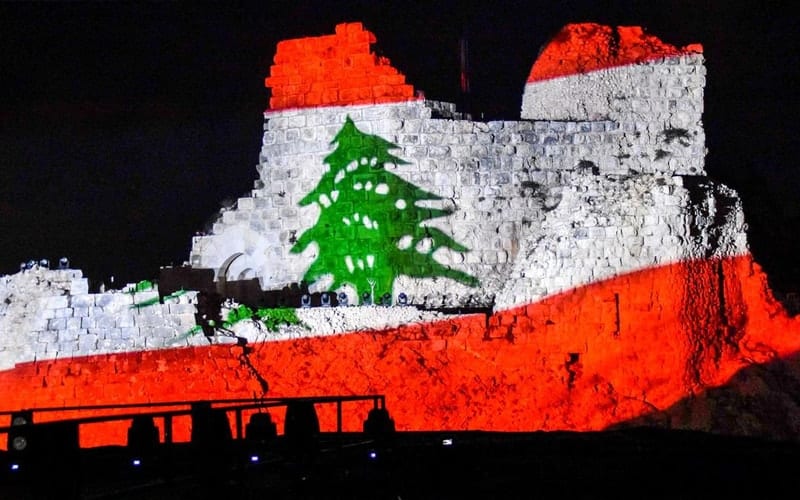BEIRUT: Lebanese protesters blocked main roads Wednesday, angered by what they viewed as the president ignoring their demands in nearly a month of rallies, and after a man was shot dead.
Hundreds marched towards the palace of President Michel Aoun in the town of Baabda outside the capital, where security forces laid coils of barbed wire across the access road.
Aoun had said on television the previous night that Lebanese who did not see any decent person in power should “emigrate” — a comment that, despite the presidency scrambling to clarify it, immediately sent protesters onto the streets.
One man died of gunshot wounds overnight after the army opened fire to disperse protesters south of the capital, in the second such death since the start of the largely peaceful protests.
Activists blocked roads inside the capital from the morning, as they did the main highways connecting Beirut to the north and south of the country, with the smoke of burning tires blackening the air in several places.
One activist, Antoine Saad, manning a roadblock in the village of Jal al-Deeb, argued that the president “continues to speak to his people in a belittling manner”.
“He needs to know the people don’t want him anymore and he needs to go.”
– Complete overhaul –
Lebanon’s unprecedented protest movement has since October 17 called for a complete overhaul of a system they charge is incapable of providing the most basic services and syphoning off state funds.
After the government stepped down on October 29, protesters demanded a fresh cabinet of experts not affiliated with any of the traditional political parties, which are divided along sectarian lines.
But Aoun in the interview argued that a government made up solely of technocrats would not be able to set policies and would not represent the people.
He criticised the street movement’s lack of leadership, after previously saying he would be prepared to meet representatives to hear their demands.
In central Beirut, a protester said that, if the head of state wanted to speak to the leaderless movement, a lot of people would be making their way to him.
“The president asked to meet representatives of the revolution, whereas it’s all of us who are responsible for it,” he told local television.
“So we’re all going to head to Baabda.”
– Deep poverty –
The protests erupted spontaneously last month against a government plan to tax calls made via free mobile phone applications such as WhatsApp.
But they have since morphed into a mass cross-sectarian movement denouncing everything from unemployment and rampant poverty to poor healthcare and endless power cuts.
The World Bank says around a third of Lebanese live in poverty and has warned the country’s struggling economy could further deteriorate if a new cabinet is not formed rapidly.
The former cabinet will remain in a caretaker capacity until a fresh one is formed, but required parliamentary consultations on the matter have not even been scheduled yet.
Forming a government typically takes months in Lebanon, with protracted debate on how best to maintain a fragile balance between religious communities.
In the interview late Tuesday, Aoun suggested a new cabinet made up of technocrats and politicians.
He did not deny the existence of US pressure to exclude his powerful ally, the Shiite movement Hezbollah, from any future government, but said he could not be forced to do so as they represented “a third of Lebanese”.
Iran-backed Hezbollah is designated a “terrorist” group by the United States and several of its officials are under US sanctions.
But the movement, the only one not to have disarmed after the end of the 1975-1990 civil war, is a key political player in Lebanon with posts in parliament and in the resigning government.

